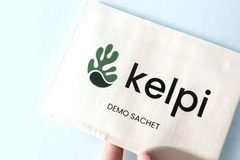Coca-Cola India rolls out recycled lightweight bottles for carbon savings
20 Jun 2024 --- Coca-Cola India has launched its Affordable Small Sparkling Package (ASSP) bottle type made with 100% recycled PET (rPET), starting with the state of Orissa. The 250 mL bottles — comparatively lighter than a standard bottle — are manufactured by Coca-Cola’s bottling partner, Hindustan Coca-Cola Beverages (HCCB).
Compared to conventional virgin PET packaging, ASSP carbon emissions are reduced by 36% through the lightweighting of PET material, identifies Coca-Cola. Additionally, the shift from virgin PET to rPET in ASSP contributes to a further reduction in the carbon footprint, resulting in an overall 66% decrease compared to non-ASSP packaging with virgin PET.
“Our efforts at expanding rPET in India is a testimony of our commitment to increase the availability of high-quality, food-grade, recycled plastic for consumers in India,” says Enrique Ackermann, vice president for Technical Innovation and Supply Chain at Coca-Cola India and Southwest Asia.
“With these eco-friendly bottles we seek to drive a circular economy for packaging, reduce waste and carbon emissions, bringing us closer to the World Without Waste goal of making bottles with 50% recycled content by 2030.”
Lightweighting plastic
When Coca‑Cola India was challenged with keeping smaller-sized products fresh and affordable, Coca‑Cola’s innovators created what was introduced as the “lightest bottle in the world for fully carbonated products” — the ASSP.
 ASSP bottles reduce plastic in bottles by up to 40% compared to standard bottle production, claims Coca-Cola.The ASSP, introduced in 2016 and weighing less than 10 g, took nearly two years to create. Proprietary Coca‑Cola computer simulation methods were used to design the package using one-third less plastic than a standard plastic bottle in India (15.5 g), and a thin barrier layer was added to the bottle walls to prevent carbonation from escaping.
ASSP bottles reduce plastic in bottles by up to 40% compared to standard bottle production, claims Coca-Cola.The ASSP, introduced in 2016 and weighing less than 10 g, took nearly two years to create. Proprietary Coca‑Cola computer simulation methods were used to design the package using one-third less plastic than a standard plastic bottle in India (15.5 g), and a thin barrier layer was added to the bottle walls to prevent carbonation from escaping.
According to the company, these two advances extend product shelf life by five months or more when combined.
This technology reduces plastic usage in the production of plastic bottles for sparkling products by up to 40% compared to the production of a standard plastic bottle in some cases.
“The introduction of rPET in ASSP is a crucial step toward plastic circularity, emphasizing a substantial reduction in the overall carbon footprint,” says Alok Sharma, executive director for Supply Chain at HCCB.
“This initiative aligns with our broader vision to scale up sustainable practices and lead the way in shaping a greener future for the beverage industry in India.”
The company’s aim is to make 100% of its packaging recyclable globally by 2025 and to use at least 50% recycled material in its packaging by 2030.
“Plastic soup” solution?
There are those who argue that lightweight plastic packaging does not mean that less plastic is used in the process. As Plastic Soup Foundation highlights: “In fact, more lightweight packages are produced.”
The organization underscores: “A reduction in the weight of plastic packaging does not influence the likelihood that it will end up in the ocean. If the lighter packaging enters the environment after usage, it will, in fact, break down into smaller pieces more quickly than packaging that is thicker and stronger.”
In countries where consumers have less buying power, Plastic Soup Foundation flags that companies like Unilever and Danone sell small packages with a very small amount of a given product (for example, shampoo, body wash, washing powder or coffee) inside.
“Whatever the product may be, there is proportionately a lot more packaging material used compared to when larger or ‘bulk’ product sizes are used, even if it is lightweight plastic. To achieve a real reduction in plastic, it is essential to move to a system in which the consumer takes their own reusable container to the shop to be refilled.”
By Benjamin Ferrer











